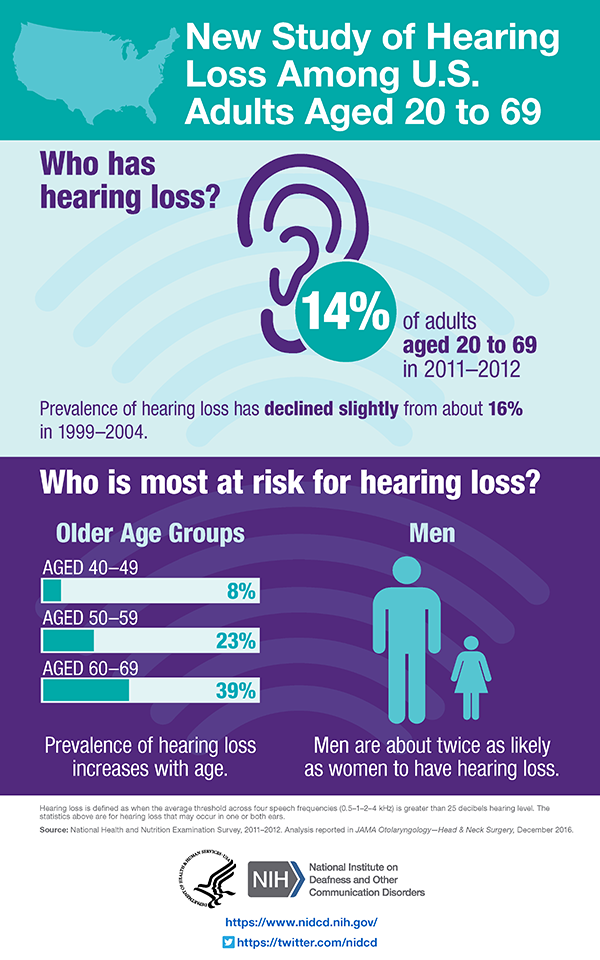Would You Mind Repeating That, Please?
"This doesn't mean we have prevented hearing loss. It just means it is delayed."
Howard J. Hoffman, National Institute on Deafness and Other communication Disorders
"Initially [on reading the new paper on hearing loss], I was surprised."
"But then I thought about all the reasons why hearing loss might be declining."
Dr. Debara Tucci, professor of otolaryngology, Duke University, Durham, North Carolina
"The evidence suggests that 70 is the new 60."
"With health and mortality of 70-year-olds today being similar to the health and mortality trends of 50-year-olds half a century ago."
James Vaupel, director, Max Planck Institute for Demographic Research, Germany

Common wisdom had it that the popularized and ubiquitous use of headphones and earbuds would inevitably result in a population-deleterious effect of spurring hearing loss. But a new research paper has illustrated that among American citizens of working age, the demographic most likely to use those devices, hearing loss has actually declined.
The study came to its surprise conclusion on the basis of data comparison from studies undertaken between 1999 and 2004; the most recent data available dating between 2011 and 2012. The researchers, led by Mr. Hoffman, pointed out that the U.S. population has seen an improving hearing status since 1950. Some 15.9 percent of the population in the earlier period under observation had hearing problems, while 14.1 percent of the later group had hearing loss.
To fully realize how important the differential is, the total population of 20- to 69-year-olds had in that interval, grown by 20 million, with the greatest growth occurring in the oldest demographic, and even so the total number of people with hearing loss had fallen from 28 million to 27.7 million. At one time noisy factories, less use of medications with the potential of causing hearing loss, and childhood illness-preventive immunizations were some of the issues capable of affecting hearing.
And while prolonged exposure to extremely loud sounds can damage hearing, the use of headphones as a comparable threat to hearing remains unproven to the present time. People in the age group of early to late 20s experienced no greater hearing loss than those of similar age, a decade earlier. The study, published in the journal JAMA Otolaryngology -- Head and Neck Surgery, found men of all ages likelier to experience hearing problems than women.
Overall, the greatest threat to hearing loss remained age-related hearing damage, a natural enough biological process. The findings were broadly met with enthusiasm, but others in similar fields of research felt the declining prevalence of hearing loss was associated with a broader international health trend that has witnessed virtually every major disease and disability occurring later in life.
Labels: Bioscience, Health, Research

0 Comments:
Post a Comment
<< Home